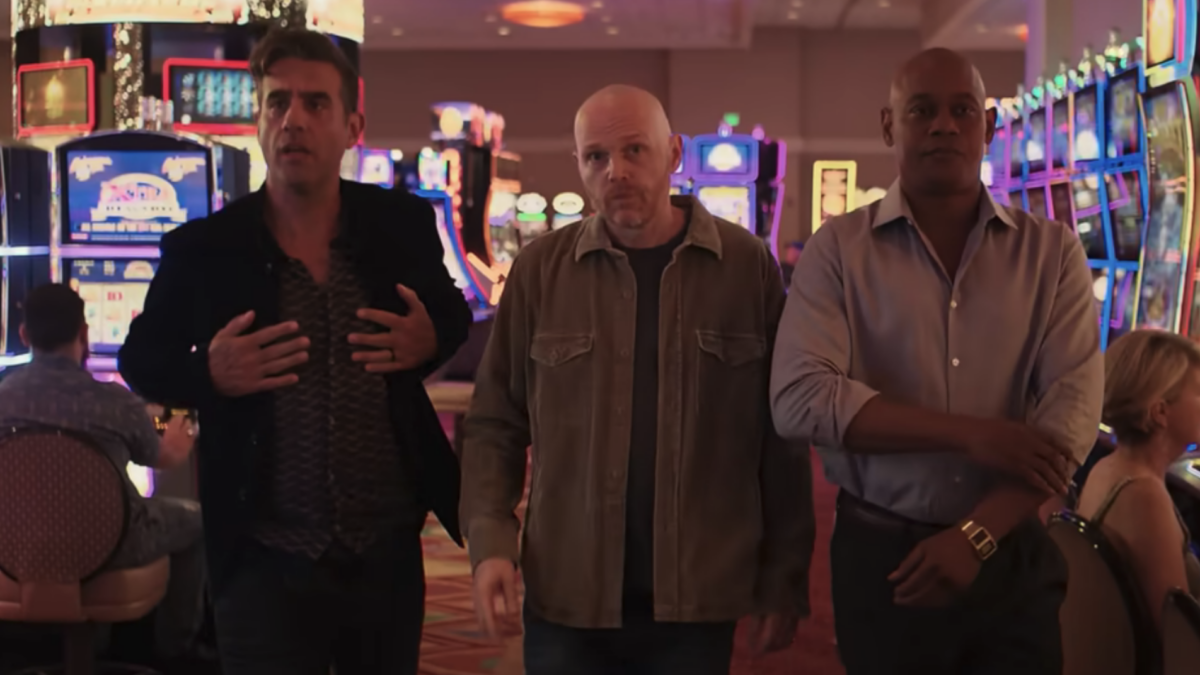The age for first-time fathers has increased, with the percentage doubling for first-time dads over 40. While research around this trend is sparse, in general becoming a parent later in life is seen as a good thing. Older dads are more financially secure, they’re better able to spend time with their kids, and theoretically, they’re more patient. Also, though, they’re older. Energy levels aren’t quite what they were when these fathers were in their twenties. They’re less in tune with pop culture. They’re edging into “get off my lawn” territory.
As such, the plight of older dads is an extremely topical subject for comedy. Dealing with the aches and pains of aging while attempting to chase young’uns around, playing catch with declining eyesight and reflexes, and resisting the urge to yell “get off my lawn!” when the neighborhood kids come to visit are things many of us deal with, even those of us who sired offspring in our thirties rather than our forties or fifties. Thus, when I saw that comedian Bill Burr, who became a father at 48, decided to delve into the topic with his new movie “Old Dads” on Netflix, I was intrigued.
Alas, the movie isn’t actually focused on the fatherhood angle, which quickly recedes into the background. Starring Burr (Jack), Bobby Cannavale (Connor), and Bokeem Woodbine (Mike) as three friends and business partners, the film opens on the topic of dads, with the trio at a party at Jack’s house. Connor’s son is terrorizing everyone, or “learning how crossing this boundary is affecting his ever-evolving moral code,” in the words of his mother, a loony Los Angelino whose approach to parenting is somewhat laxer than that of a hyena.
This scene sets the stage for the actual thrust of the movie, which is that it’s difficult for aging Gen Xers to navigate the modern world’s ever-evolving moral code. In the next scene, for example, the movie shifts to Jack, Connor, and Mike’s travails in dealing with their new millennial boss, Aspen, who assumed the role after the three sold to investors so that Jack could afford to send his kid to private school. While those travails are not irrelevant — being a dad in 2023 does necessarily involve a lot of nonsense stemming from modern secular religion’s prevalence in the workplace — they are not travails that are specific to fathers.
Nor does the movie’s main conflict have anything to do with fatherhood, which is the large number of microaggressions Jack, Connor, and Mike engage in while on a trip, along with Aspen’s right-hand man (Travis), to find Ed Cameron, a man who’s been living off the grid, and convince him to become an influencer. Presumably, this also involves explaining the internet and influencers to him, though that action occurs off-camera.
What does happen on camera is that Jack, Connor, and Mike offer colorful thoughts on sex with celebrities and whether or not Bruce Jenner kept his manhood. Naturally, the rental car company has cameras in the car and shares footage of these conversations with Aspen. As a result, the three get canceled from their jobs.
Travis, despite being a good woke millennial like Aspen, also gets canceled, though for a different reason, also having nothing to do with being an old dad, not least of which because he’s young and not a father. In the car, Mike asks him if he says the N-word when rapping along with N.W.A. Travis refuses to do so in that moment, but security footage from his apartment, also obtained by Aspen, reveals he’s quite fond of using it when rapping along with his favorite bangers.
In the age of cancel culture, these are important topics. What and where are the boundaries? Is this really how we want society to operate? And comedians such as Burr are often the ones best positioned to ask those questions and gently chide us into accepting the insanity of the fact that they’re questions that even need to be asked. What they are not are topics specific to being an old dad. Young dads, single men, moms, and single women can get canceled too.
Nonetheless, unlike with “Barbie,” “Old Dads” is the movie the preview showed us it would be. For that Burr deserves credit. He didn’t try to fool anyone. Also, the movie is moderately entertaining with some genuinely funny moments here and there and really tight pacing. There are no wasted scenes.
As a whole, though, it uses the premise of old dads as a launchpad for a fight against the silliness of modern life rather than having fun with the challenges that we older fathers of the 21st century face. As such, on my dad-centric movie rating scale, I’m not proud of it and I’m not mad about it, but as with “Barbie,” I am disappointed.









